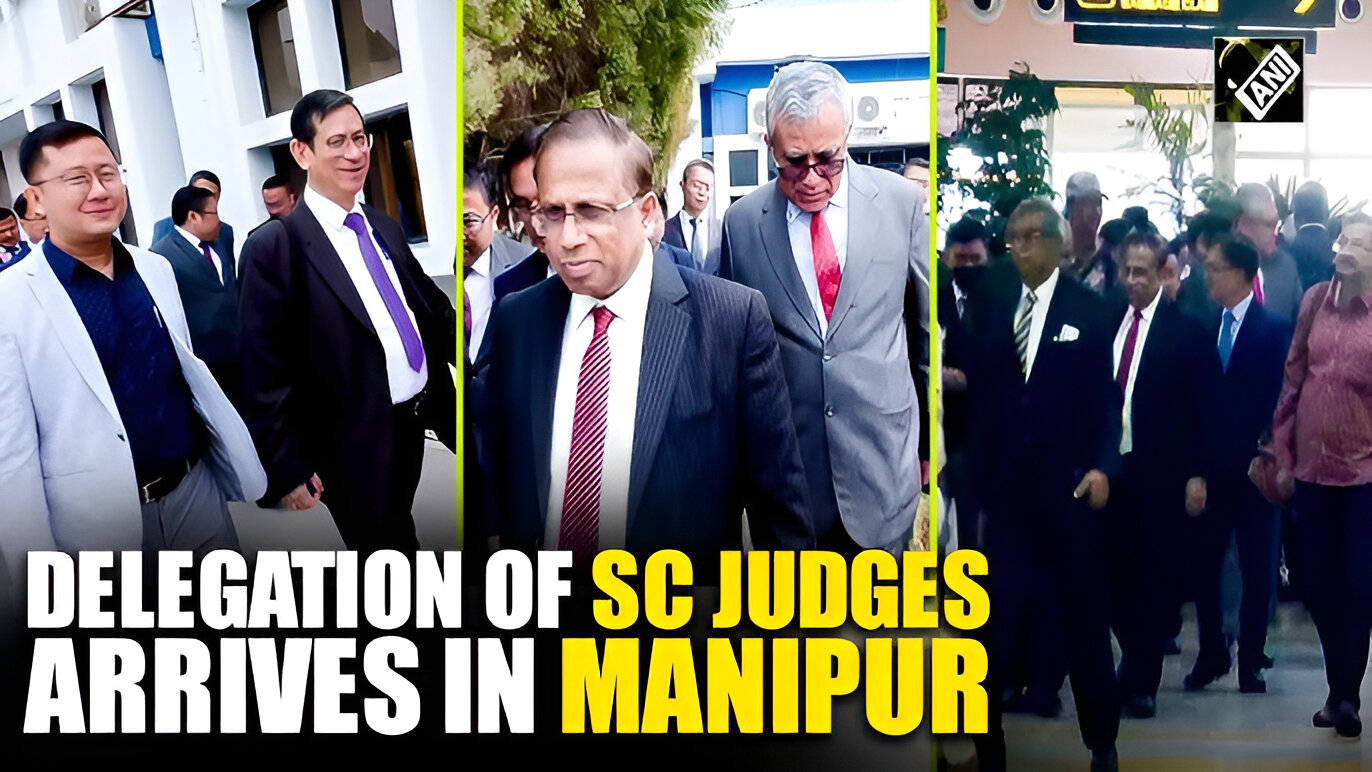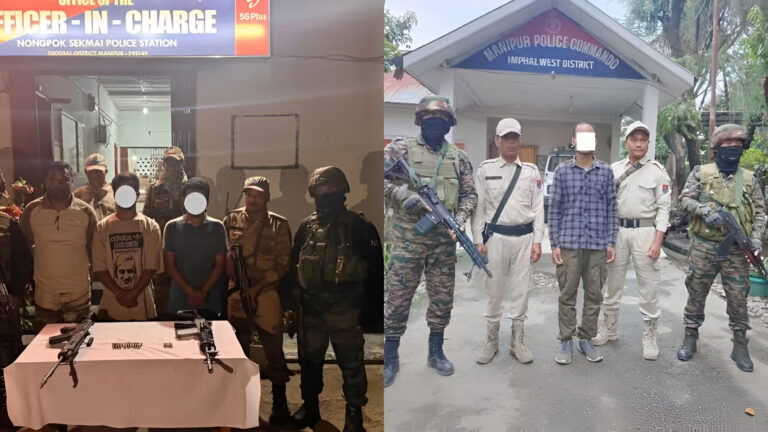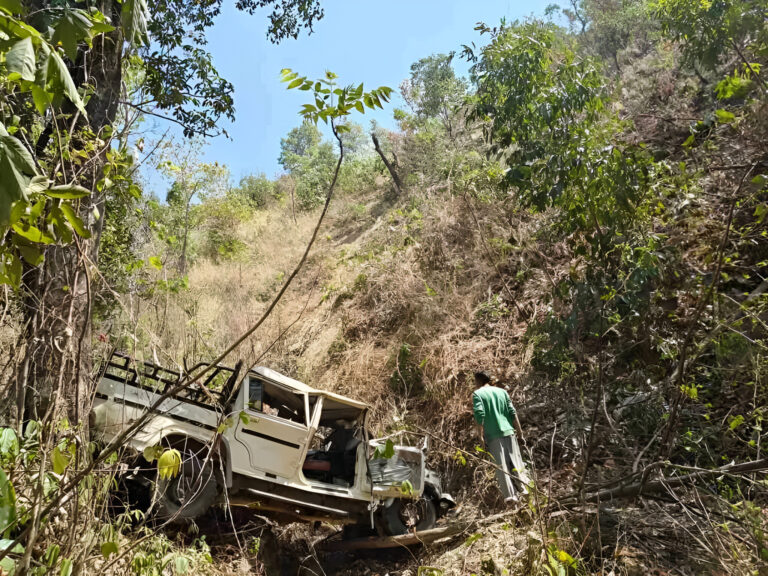Supreme Court Judges’ Delegation Visits Manipur: A Comprehensive Overview
In a significant move to address the ongoing humanitarian crisis in Manipur, a delegation of Supreme Court judges arrived in Imphal on March 22, 2025. Their mission: to assess and bolster legal and humanitarian support for those affected by the ethnic violence that has plagued the region since May 2023.
Summary of the Visit
A five-member delegation of Supreme Court judges, led by Justice B.R. Gavai, arrived in Imphal, Manipur, on March 22, 2025. Their visit aims to assess and enhance legal and humanitarian support for individuals affected by the ongoing ethnic violence in the state. The delegation plans to visit relief camps housing Internally Displaced Persons (IDPs) and inaugurate legal services and medical aid initiatives across various districts. This effort underscores the judiciary’s commitment to addressing the crisis and ensuring that affected communities receive necessary support.
Detailed Analysis
Background of the Conflict
To understand the significance of this judicial intervention, it’s essential to grasp the roots of the conflict. On May 3, 2023, violence erupted in Manipur following a rally organized by the All Tribal Students Union of Manipur (ATSUM). The rally highlighted tensions between the Meitei and Kuki communities, leading to widespread unrest. The situation escalated rapidly, resulting in numerous casualties and the displacement of thousands. The central government had to deploy paramilitary forces to restore a semblance of order. DD News
Composition of the Delegation
The delegation comprises esteemed members of the judiciary:
- Justice B.R. Gavai: Serving as the Executive Chairman of the National Legal Services Authority (NALSA), Justice Gavai leads the delegation. Free Press Journal+10Free Press Journal+10Hindustan Times+10
- Justice Surya Kant: Known for his contributions to environmental jurisprudence and human rights.
- Justice Vikram Nath: Recognized for his work in criminal law and judicial reforms.
- Justice M.M. Sundresh: Noted for his expertise in civil and constitutional matters.
- Justice K.V. Viswanathan: An authority in corporate and commercial law.
- Justice N. Kotiswar Singh: Hailing from the Northeast, he brings invaluable regional insights to the delegation.
Objectives of the Visit
The delegation’s visit is multifaceted:
- Assessment of Relief Camps: They aim to evaluate the living conditions in relief camps housing Internally Displaced Persons (IDPs). This on-ground assessment is crucial for understanding the challenges faced by the displaced communities.Big News Network+9DD India+9LawBeat+9
- Inauguration of Legal and Medical Camps: Justice Gavai is set to virtually inaugurate legal services camps and medical camps across all districts of Manipur. Additionally, new legal aid clinics will be established in Imphal East, Imphal West, and Ukhrul districts. These initiatives aim to provide immediate legal assistance and healthcare services to those affected. Free Press Journal+1India Today+1
- Distribution of Relief Materials: The delegation plans to oversee the distribution of essential relief materials to IDPs, ensuring they have access to basic necessities.DD News+5India Today+5LawBeat+5
- Facilitation of Government Welfare Schemes: By connecting displaced individuals with government welfare programs, the camps aim to facilitate access to healthcare, pensions, employment schemes, and the reconstruction of identity documents.
Significance of the Visit
This visit holds profound significance:
- Judicial Activism: The judiciary’s proactive approach underscores its commitment to upholding human rights and ensuring justice reaches the grassroots.
- Reinforcement of Legal Aid: By establishing legal aid clinics and services, the delegation aims to empower affected individuals with the tools to seek justice and rebuild their lives.
- Humanitarian Support: The distribution of relief materials and the inauguration of medical camps highlight a holistic approach to rehabilitation, addressing both legal and health concerns.
Challenges and Criticisms
While the delegation’s efforts are commendable, they are not without challenges:
- Security Concerns: The volatile situation in Manipur poses security risks. Ensuring the safety of the delegation and the beneficiaries of their initiatives is paramount.
- Logistical Hurdles: Coordinating camps across multiple districts requires meticulous planning and resources.
- Skepticism from Locals: Some community members may harbor skepticism about the effectiveness of such interventions, especially if past promises have not materialized.
Community Reactions
The local communities have exhibited a mix of hope and caution:
- Hope: Many see the visit as a beacon of hope, signaling that their plight has reached the highest echelons of justice.
- Caution: Past experiences may make some wary, adopting a “wait and see” approach regarding the tangible outcomes of the visit.
Historical Context of Judicial Interventions in Humanitarian Crises
India’s judiciary has a history of intervening in humanitarian crises:
- Post-Godhra Riots: The Supreme Court’s intervention led to the reopening of several cases, ensuring justice for the victims.
- Bhopal Gas Tragedy: Judicial activism ensured that the victims received compensation and that safety regulations were tightened.
Such precedents highlight the judiciary’s role as a guardian of rights, especially when other institutions falter.
The Role of NALSA
The National Legal Services Authority (NALSA) plays a pivotal role in this mission:English.Mathrubhumi+2Hindustan Times+2Free Press Journal+2
- Legal Aid: NALSA’s mandate is to provide free legal services to the underprivileged, ensuring that justice is not a commodity but a right.
- Awareness Programs: By conducting legal literacy camps, NALSA empowers individuals with knowledge about their rights and remedies.
- Victim Compensation: Ensuring that victims of violence receive timely and adequate compensation is a cornerstone of NALSA’s initiatives.
Economic and Social Benefits of a Reformed Judiciary
It might seem surprising, but a robust and efficient judiciary has far-reaching impacts beyond the legal sphere—it can boost economic growth and social harmony. When citizens have faith in the justice system, it creates a conducive environment for investment, entrepreneurship, and social development. Businesses are more likely to thrive, and communities feel more secure when they know that their rights are protected.
In essence, the reforms inspired by this visit are not just legal technicalities; they are investments in the future of Manipur. A reformed judiciary can be a catalyst for broader social progress, enhancing the quality of life for everyone in the region.
Overcoming Challenges: Lessons Learned and the Road Ahead
Every significant change comes with its share of obstacles. While the delegation’s visit has been met with widespread optimism, there are challenges ahead. Infrastructural limitations, resistance to change, and the deeply entrenched practices of the past can all slow down the pace of reform. However, history shows us that meaningful change is possible when determination meets opportunity.
The key lessons from this visit revolve around the power of dialogue, the importance of transparency, and the need for continuous engagement between the judiciary and the public. As the legal system in Manipur embarks on this new chapter, the road ahead will require patience, persistence, and a steadfast commitment to the principles of justice.
The Role of Technology in Modernizing the Judiciary
A notable point of discussion during the delegation’s visit has been the role of technology in modernizing legal processes. In today’s digital era, technology can serve as a powerful ally in making the judiciary more accessible and efficient. From virtual courtrooms to AI-driven case management systems, the potential for technology to revolutionize the legal landscape is enormous.
Imagine trying to navigate a maze with outdated maps versus using a state-of-the-art GPS system. The difference is night and day. By embracing technological innovations, Manipur’s legal system can overcome many of the traditional challenges that have hindered its progress. This integration not only speeds up judicial processes but also enhances transparency, making it easier for citizens to track the progress of their cases.
Final Reflections: A Journey Towards Justice
As we wrap up our deep dive into this landmark event, it’s clear that the arrival of the Supreme Court judges delegation in Imphal is a transformative moment for Manipur. It’s a blend of tradition and modernity, a meeting point where the old guard of legal practice meets fresh, innovative ideas. This visit is a call to action—a reminder that the pursuit of justice is a continuous journey, one that requires collaboration, innovation, and an unwavering commitment to the truth.
For the people of Manipur, this event is more than just a news story; it’s a symbol of hope and progress. It represents the promise of a future where justice is not delayed, where the legal system is both fair and accessible, and where every citizen can feel confident that their rights will be upheld.
FAQs
- What is the significance of the Supreme Court judges delegation visiting Imphal?
- The visit symbolizes a commitment to judicial reforms, enhanced transparency, and direct engagement with the local community, aiming to modernize and strengthen the legal system in Manipur.
- What activities are planned during the delegation’s visit?
- The agenda includes engaging with local legal professionals, observing court proceedings, conducting workshops and seminars, addressing public grievances, and reviewing the legal infrastructure in Manipur.
- How does this visit impact the local community in Manipur?
- The delegation’s visit fosters trust and accountability, offers educational opportunities for legal professionals and students, and creates a dialogue that helps align the legal system with the needs of the people.
- What role does technology play in the planned judicial reforms?
- Technology is expected to streamline case management, enhance transparency through digital systems, and modernize court operations, making the judicial process more efficient and accessible.
- How might the reforms inspired by this visit benefit the overall development of Manipur?
- A reformed and efficient judiciary boosts public confidence, encourages investment, and paves the way for broader social and economic development by ensuring that justice is delivered promptly and fairly.


